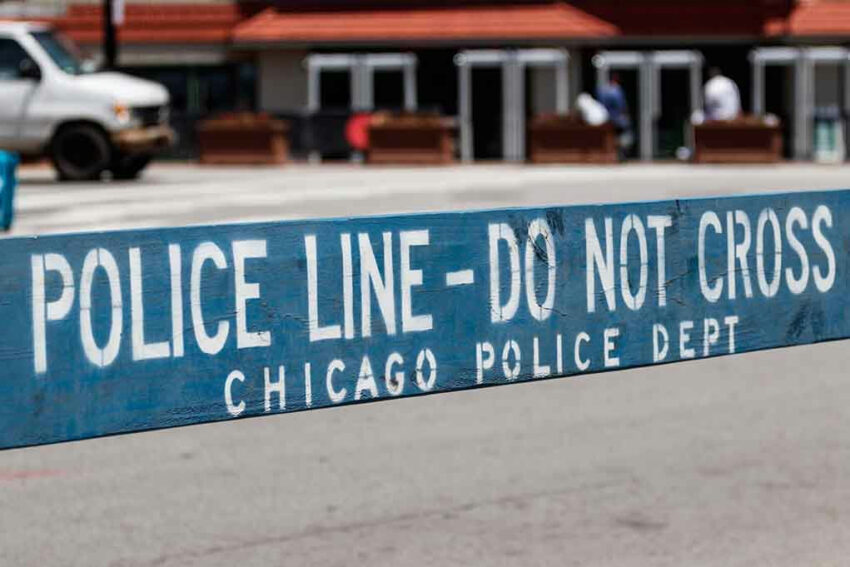Mayor Johnson’s order defying Trump’s federal intervention exposes a deep constitutional crisis, putting local autonomy and conservative principles in direct conflict with progressive urban resistance.
Chicago Mayor’s Executive Order: A Direct Challenge to Federal Authority
In February 2025, Chicago Mayor Brandon Johnson signed an executive order commanding city agencies and police not to cooperate with federal troops or agents amid President Trump’s renewed crackdown on urban crime and illegal immigration. Framing the federal deployment as “tyranny,” Johnson’s directive establishes the Protecting Chicago Initiative, which coordinates local resources and community groups to resist federal intervention. The initiative aims to safeguard civil liberties and reinforce local governance, directly challenging Trump’s efforts to assert federal authority over city law enforcement.
The executive order came in response to President Trump’s announcement to deploy federal forces to cities with high crime rates, including Chicago. Trump’s policies, enacted through executive orders and new legislation, target criminal justice reforms and progressive bail practices that he argues fuel urban violence. The administration’s stance has sparked nationwide tension, as Democratic city leaders in places like St. Louis organize similar resistance and community action days. The federal actions have reignited debates over the constitutionality of federal intervention in local affairs and the balance of power between city governments and Washington.
Trump Administration’s Immigration Crackdown: National Guard and Expedited Removals
Upon returning to office in January 2025, President Trump immediately signed a series of executive orders ramping up immigration enforcement and crime reduction initiatives. The orders declared a national emergency at the southern border, mandated the detention of immigrants charged with crimes, and expanded the use of expedited removal—allowing authorities to deport individuals without full hearings if they cannot prove lawful entry. The administration also banned “catch and release,” ended birthright citizenship for children of non-permanent residents, and suspended most refugee admissions. These actions led to a sharp drop in illegal border crossings, but also triggered widespread concern about due process and humanitarian protections.
Trump’s immigration overhaul further restricts access to public benefits for undocumented immigrants and dramatically expands the federal detention system, including family detention. The “One Big Beautiful Bill Act” allocates $45 billion for immigration enforcement, quadrupling ICE’s budget and authorizing indefinite detention for children and families. Law enforcement professionals generally support tougher measures, citing links between bail reform and increased crime, while progressive activists argue these reforms are necessary for equity and civil rights. The administration’s aggressive approach has drawn praise from conservatives seeking stronger borders, but also criticism over potential violations of constitutional protections and humanitarian standards.
Legal Battles and Community Mobilization: Protecting Local Autonomy
Mayor Johnson’s Protecting Chicago Initiative mobilizes city agencies, legal teams, and community organizations to defend residents’ rights and autonomy. The order calls for public records requests, legal challenges, and increased transparency regarding federal actions. Chicago’s progressive leadership, backed by advocacy groups, contends that federal intervention undermines constitutional guarantees and disrupts local governance. The Department of Homeland Security has reportedly contacted local military bases for enforcement support, intensifying the standoff between federal and city authorities. As legal and legislative battles continue, the city remains active in coordinating community action and defending its position against what Johnson decries as “coordinated tyranny.”
Short-term impacts include heightened political tension, increased activism, and ongoing legal disputes over federal authority. Long-term consequences may set precedents for local resistance and influence national urban policy, criminal justice, and immigration enforcement. The conflict affects Chicago residents, law enforcement, and broader urban populations, with economic, social, and political ramifications—disrupting city services, polarizing communities, and shaping future elections. Expert analysis highlights the risks of overreach and the need to uphold both security and constitutional freedoms, with partisan divides expected to deepen as the situation evolves.
Hey, South Chicago, Mayor Mayhem wants violent criminal illegal aliens in your neighborhoods
Chicago mayor orders police not to cooperate with federal troops or agents amid Trump’s planned immigration crackdownhttps://t.co/RUTBrCl1b4
— NLRDOGTOWN (@NLRDOGTOWN) September 2, 2025
As Mayor Johnson and President Trump remain locked in a battle for control, the debate over federal intervention versus local autonomy continues to dominate headlines and policy discussions. For conservative Americans committed to constitutional principles and limited government, the outcome will shape the future of urban governance, public safety, and the preservation of individual liberty.
Sources:
Chicago Mayor Issues Order to Counter Trump’s “Tyranny” and Federal Intervention
Dems Vow to Fight Trump’s ‘Tyranny’
Blue City Bail Policy Lets Violent Criminals Walk Free—Trump’s Crackdown Targets Loopholes
Click this link for the original source of this article.
Author: Editorial Team
This content is courtesy of, and owned and copyrighted by, https://ourpatriot.com and its author. This content is made available by use of the public RSS feed offered by the host site and is used for educational purposes only. If you are the author or represent the host site and would like this content removed now and in the future, please contact USSANews.com using the email address in the Contact page found in the website menu.





